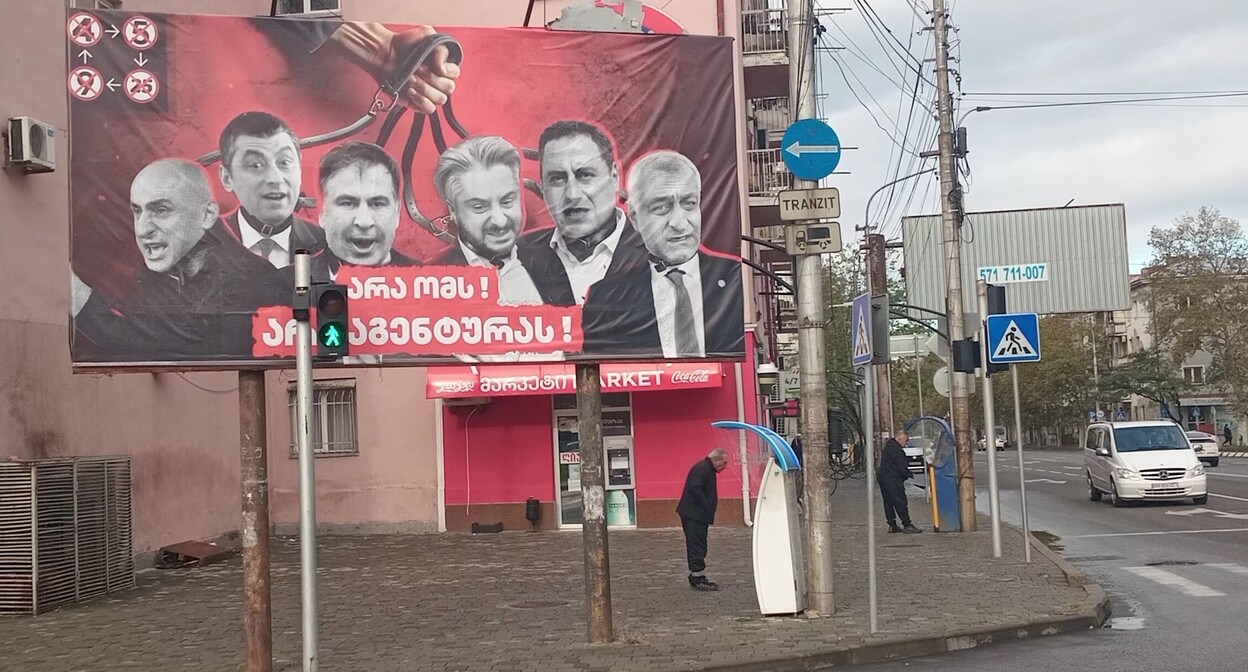HRC "Memorial": both Georgia and Russia got ready to South-Ossetian war well in advance
The warfare in South Ossetia was prepared both by Georgia and Russia. This conclusion was made by human rights activists of the Human Rights Centre (HRC) "Memorial" and the "Demos" Centre who visited Georgia on October 12-23 to study humanitarian consequences of the August military conflict.
"As far as we know, the Georgian party had started its active preparation for the military operation several days before it started. The Russian party had also mastered a military operation in the territory of South Ossetia and transfer of troops across the Caucasian Ridge," the participants of the visit report in the joint press release of the HRC "Memorial" and "Demos".
"Artillery fire between the Georgian and South-Ossetian parties became more active early in August and then continued scaling up," the human rights activists write. Local residents told them that both parties had been suffering losses well before large-scale warfare in Tskhinvali on August 8. Thus, numerous victims with fragmental, mine-explosive and gunshot wounds began to arrive to the hospital of Tskhinvali already from August 6.
According to eyewitnesses, in the afternoon on August 7, Georgian military columns were moving from Gori in direction to Tskhinvali. At night on August 8, Georgia started shelling Tskhinvali from volley fire installations. Starting morning of August 8, Georgian militaries several times attempted to storm Tskhinvali; however, each time they were forced to retreat. Georgian troops started leaving South Ossetia in the evening of August 9, and on August 12, they abandoned all of the Gori District.
Local residents told human rights activists that many of them had left their villages well before August 8 to escape reinforced skirmishes. Those who could not timely leave, mainly elderly people, followed Georgian militaries.
"They were followed by Russian army, then - by Ossetian militia and then - by civil marauders," said Oleg Orlov, head of the HRC "Memorial", in a joint press conference of the HRC "Memorial" and "Demos" Centre on October 28.
Early, the "Caucasian Knot" correspondent was not quite correct in his report from the above press conference, when wrote that, according to Oleg Orlov, marauders burnt down and destroyed Georgian villages by 80 percent, and destructions in these villages were in fact comparable with what human rights activists saw in Tskhinvali. It was also reported that all the villages, except for Tkviavi and Karbi were completely burnt down and ruined, but no warfare traces could be found there.
According to the updated information, which follows from the human rights activists' report about their travel to Georgia, only Georgian Ergneti village was destroyed by 90 percent; marauders had burnt down over 130 out of 150 houses there. In other villages, the count of burnt down houses was in units or dozens. "These destructions," Mr Orlov has emphasized, "can't be compared with the scale of devastation of Tskhinvali," although many Georgian villages, according to the human rights defender, had indeed suffered a lot from marauders.
The human rights activists have concluded, based on results of their observations and conversations with war eyewitnesses, that all the parties of the armed conflict in South Ossetia had seriously breached the norms of the humanitarian law; and now they state that there are all grounds to believe that war crimes had been committed during the August events.






![Tumso Abdurakhmanov. Screenshot from video posted by Abu-Saddam Shishani [LIVE] http://www.youtube.com/watch?v=mIR3s7AB0Uw Tumso Abdurakhmanov. Screenshot from video posted by Abu-Saddam Shishani [LIVE] http://www.youtube.com/watch?v=mIR3s7AB0Uw](/system/uploads/article_image/image/0001/18460/main_image_Tumso.jpg)